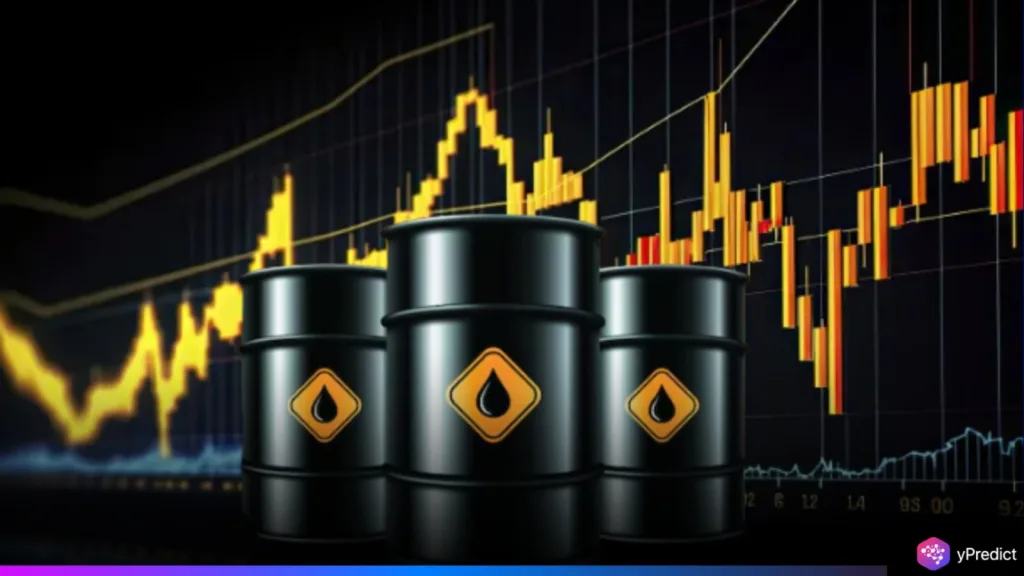
Global financial markets opened the week on a cautiously optimistic note, with major stock indices advancing despite heightened tensions amid the Israel-Iran War. Investors appeared to downplay the risk of broader regional escalation, even as geopolitical uncertainty loomed large.
Meanwhile, crude oil prices, which spiked in response to the conflict, edged lower as concerns about supply disruptions eased. This unexpected resilience across equities and commodities signals a complex balancing act for markets between geopolitical volatility and economic fundamentals, as attention now shifts to upcoming central bank decisions and inflationary pressures.
Market Gains Defy Geopolitical Headwinds
Reuters reports that global financial markets showed tentative signs of stabilization on Monday as investor anxiety over the Israel-Iran conflict began to subside. While missile exchanges over the weekend initially rattled sentiment, investors grew more confident that the hostilities would remain localized, triggering modest gains in equities and a pullback in safe-haven assets.
Despite a volatile weekend marked by intensified military exchanges between Israel and Iran, equity markets showed resilience. Analysts suggest investors are banking on containment of the conflict, with minimal impact on global oil flows, at least for now. This sentiment was evident across major indices and asset classes, which rebounded in Monday’s early trading
Enguerrand Artaz of La Financière de l’Echiquier noted that,
The situation in the Middle East is not making the market shake, and it’s likely it will stay that way as long as there is no major escalation. Markets are riding strong momentum. The mood overall is still very much about buying the dip.
Futures tied to the S&P 500 and Dow Jones Industrial Average rose around 0.5%, recovering some of Friday’s sharp losses, when risk-off sentiment had sent the Dow tumbling over 700 points. European stocks followed suit, with the STOXX 600 advancing 0.3%, and MSCI’s world share index edged up 0.2%, hovering just below recent highs.
Meanwhile, Asian markets also posted gains, China’s blue-chip CSI 300 rose 0.24%, and Hong Kong’s Hang Seng climbed 0.7%, boosted by stronger-than-expected Chinese retail data showing a 6.4% annual increase in May.
Crude Oil Dips After Geopolitical Volatility
Oil markets, which had surged last week amid escalating tensions, began to unwind those gains. Brent crude briefly rose over 5% before retreating 0.4% to $73.85 per barrel. West Texas Intermediate also dipped to around $72. The volatility followed weekend strikes on energy infrastructure and Tehran’s veiled threats to disrupt oil transit through the Strait of Hormuz, a critical chokepoint for global energy flows. Despite these concerns, the energy market cooled as fears of a broader regional escalation receded.
In India, shares of state-run oil producers such as ONGC and Oil India gained up to 3% on expectations of sustained high crude levels, while downstream sectors like refiners and tyre manufacturers saw pressure due to rising input costs.
Moreover, Gold, which had surged to an all-time high on Friday as investors sought safety, also lost ground, falling 0.55% to $3,413 an ounce as risk appetite cautiously returned.
Conclusion
Currency markets remained relatively calm. The U.S. dollar softened slightly against the euro, which rose 0.3% to $1.1582, while holding steady versus the yen at 144.10. Energy-importing economies like Japan and the EU saw their currencies under pressure from rising oil prices. Conversely, oil-linked currencies such as the Norwegian krone and Canadian dollar benefited, with the krone reaching its strongest level since early 2023.
As the week unfolds, investors remain vigilant, but not panicked, watching geopolitical developments and macroeconomic signals while positioning for a wave of central bank decisions that could shape the trajectory of the second half of the year.







